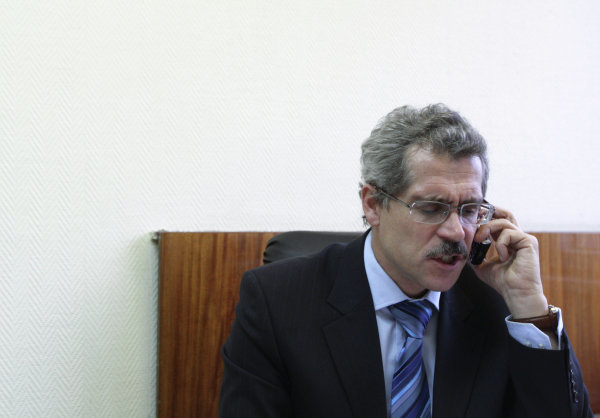MOSCOW, November 28 (RAPSI) - Ex-Director of the WADA-accredited Moscow Laboratory Grigory Rodchenkov is suspected of falsification of Russian athletes’ doping test results via remote access to a database, Russia’s Investigative Committee reports Tuesday.
Russian investigators have procured evidence of the Moscow anti-doping center’s information system laboratory base vulnerability. According to the Investigative Committee, Rodchenkov has pounced the system vulnerability and entered the database to falsify doping test results of Russian athletes.
The World Anti-Doping Agency representatives have been aware of the database vulnerability since 2014, investigators claim. Rodchenkov and two other ex-employees of the WADA-accredited Moscow Laboratory, Oleg Migachev and Timofey Sobolevsky, had the right of access to the base and athletes’ test results until June 2016. They could change the results without control for creating false evidence, the statement reads.
Russia’s Investigative Committee is going to submit evidence of detected violations to WADA and the International Olympic Committee.
Earlier in November, Russian investigators said that they would seek extradition of Rodchenkov from the United States on abuse of charges. Rodchenkov was officially made a defendant in the criminal case. Investigators believe that he was unlawfully selling prohibited medicines and deliberately destroyed doping tests of Russian athletes.
In May 2016, The New York Times published an article citing Rodchenkov, who maintained that at least 15 Russian athletes winning gold medals in Sochi were involved in a Russian “doping program” aimed to dominate its home Olympics.
On 18 May, Professor Richard McLaren from Canada was appointed by WADA as the Independent Person (IP) to head an investigative team charged with determining the facts with respect to the allegations of manipulation of doping control samples and other allegations made by Rodchenkov.
In mid-July 2016, the first part of the so-called McLaren Report was presented by McLaren acting as an independent person in a probe into alleged state-sponsored cover up and manipulation of the doping control process. At that time, the authors stated that the Russian sport authorities were aware of these facts; moreover, certain officials directly participated in falsifications.
According to the Investigative Committee’s spokesperson Svetlana Petrenko, allegations made in McLaren’s Report were debunked by Russian investigators. They spoke to hundreds of athletes, coaches, medical professionals living in Russia, who were involved with various sports and anti-doping institutions. None of them confirmed existence of state-wide doping program. If any violations took place they were made only on individual basis, Petrenko asserted.
Several athletes and coaches stated that Rodchenkov himself was distributing substances of unknown purpose, later revealed as doping, the press release reads. After complex tests were conducted by investigative team it was revealed that “anomalies” in results of athletes were caused by peculiarities of physiological processes in kidneys of persons, who underwent physical activity. Other statements made in the Report were similarly debunked and Petrenko notes that WADA has no evidence of mass consumption of doping by Russian athletes.
Also, investigators allege that Rodchenkov, who resides in the U.S. at the moment, and former head of doping control department Timofey Sobolevsky repeatedly tried to bribe head of the Anti-Doping Center Maria Dikunets into transferring them a database of athletes’ tests in exchange for money and asylum or citizenship of the United States or Canada. The database is currently in possession of investigators. Petrenko stated that Rodchenkov’s actions may be classified as obstruction of justice.



